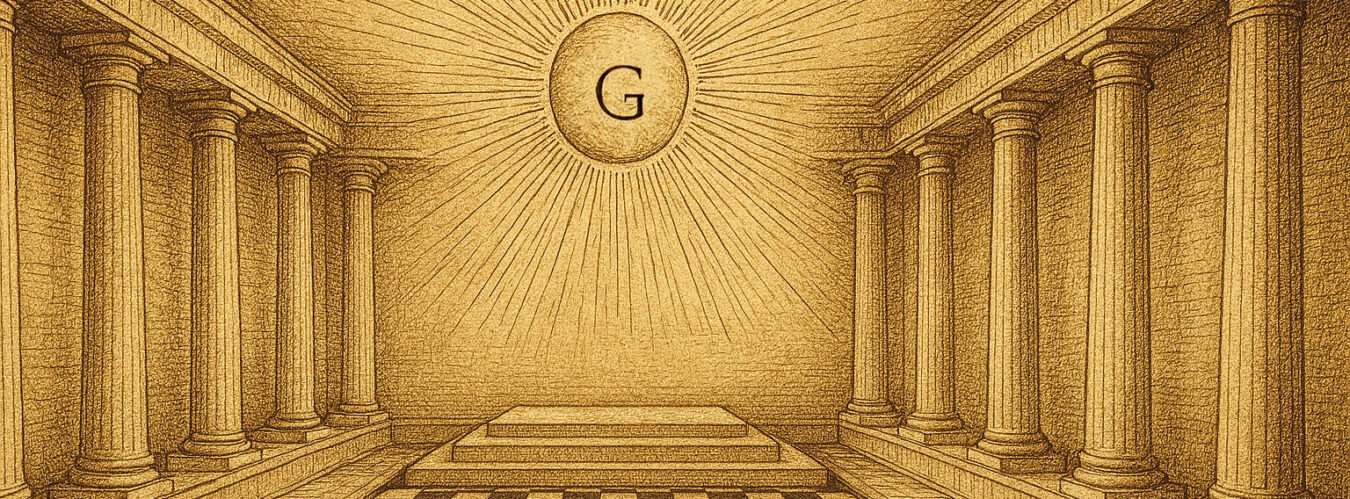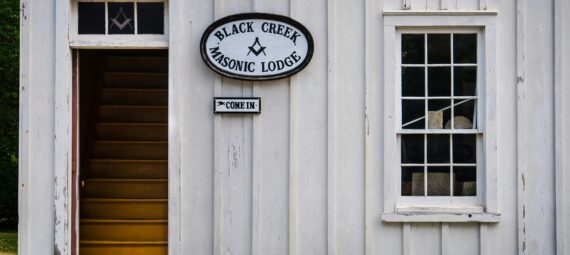Most Masons know their lodge by its people and its purpose. But few give as much thought to the roof overhead, the parking lot we walk across, or the HVAC that kicks on right before an opening gavel. That’s where the Hall Association comes in, an often-overlooked part of the Masonic ecosystem that quietly ensures we have a safe, functioning, and welcoming place to meet.
Understanding the Hall Association isn’t just for the Worshipful Master or a few officers. It’s something every engaged Brother should take interest in, because the health of our building reflects the health of our lodge.
What Is the Hall Association?
In most states, every lodge that owns or maintains real estate must have a Hall Association, a separate nonprofit corporation created to:
- Hold title to the building
- Manage the property and facilities
- Rent out space and collect income
- Return net income to the lodge or owners
This ensures compliance with both state law and IRS rules for nonprofit property-holding organizations under 501(c)(2). The Hall Association is not a lodge committee. It has its own bylaws, officers, and legal responsibilities.
Who’s Involved in the Hall Association?
A Hall Association is led by a Board of Directors, typically made up of lodge members in good standing. In most cases:
- The Worshipful Master and Senior Warden are automatically directors
- Additional directors are elected by lodge members at the November stated meeting
- Officers (President, Vice President, Secretary, CFO) are selected from the board
Every Master Mason in the lodge has a vote in electing Hall Directors, and that vote shapes the future of the lodge’s physical space.
Why It Matters to Every Member
The Hall Association manages more than just bricks and mortar. It plays a vital role in:
- Creating a positive experience for members, guests, and prospects
- Maintaining pride in the condition and presentation of our space
- Supporting lodge finances by managing rentals and reducing liabilities
- Planning for the future with capital improvements and long-term upkeep
Just like ritual work or fundraising, this is Masonic labor, done in the quarries, not the temple, but essential all the same.
What Good Hall Management Looks Like
Strong Hall Associations follow best practices in several key areas:
- Governance
Directors attend meetings, monitor operations, avoid conflicts of interest, and uphold their Grand Lodge’s Masonic Code. Officers oversee day-to-day decisions, filings, and finances. - Maintenance & Improvements
A proactive maintenance schedule avoids costly emergencies. The Hall should also maintain a capital plan for major improvements like roofing, HVAC, ADA upgrades, and more. - Rentals & Revenue
Idle space can be rented for income, but with proper use or lease agreements, market-rate pricing, and clear insurance coverage. All rentals must align with Masonic values. - Risk Management
Insurance is essential. The Hall must carry its own policies, property, liability, workers comp, separate from the lodge’s coverage. - Compliance & Reporting
The Hall Association files tax forms and Grand Lodge reports and provides financial statements to the lodge each typically February and August.
How Members Can Support the Hall Association
Whether you hold an office or not, here’s how you can contribute:
- Stay informed. Read the hall’s financial reports and ask questions.
- Vote thoughtfully. Participate in elections for Hall Directors.
- Volunteer your skills. Legal, accounting, construction, or project management experience is often needed.
- Show care for the space. Keep common areas clean, report issues early, and model respect for the building.
- Promote rentals wisely. Help the hall connect with responsible renters, from caterers to community groups, that align with lodge values.
Freemasonry teaches us to work on the building of character. But someone must also tend the literal building, the one where we raise brothers, welcome guests, and share fellowship.
Your Hall Association is more than a legal formality. It’s a partner in the mission of the lodge. By understanding its role and supporting its success, every Brother can help ensure that our sacred space remains strong for generations to come.
Fraternally,
T. A. Westgate.


